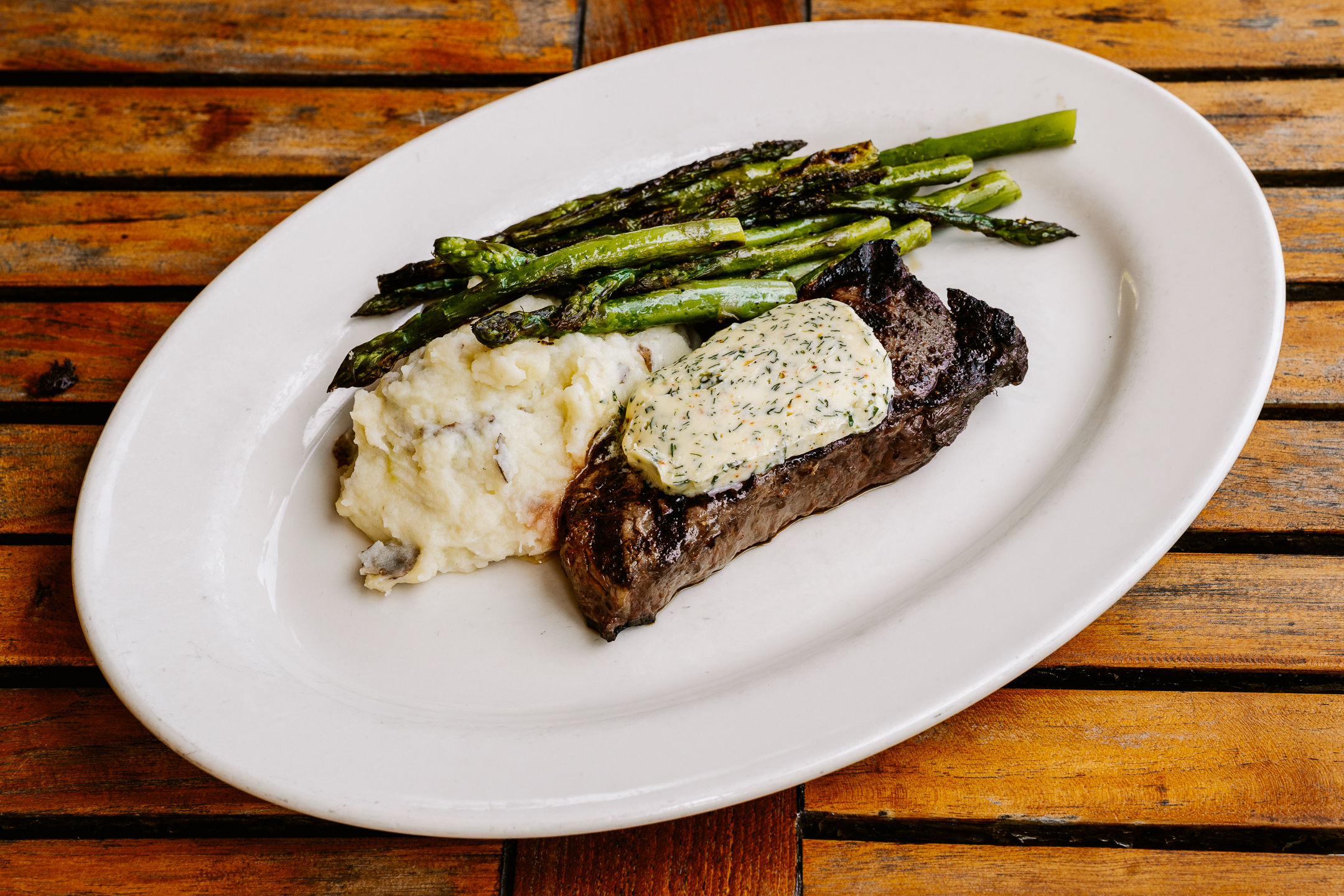Steak, asparagus, rice, and burgers all benefit from this lovely compound herb butter.
By Ari Weinzweig
Writer N.M. Kelby says, “Tarragon with its gentle licorice, reminds us not to forget that miracles are possible.” In these challenging times, there are many tangible steps we can take as per what I wrote above, but there’s little risk to adding a culinary course in miracles to our positive toolkit. And right now, tarragon butter is all over the Roadhouse menu.
How we use our tarragon butter.
One offering is made for meat lovers—ribeye steak, marinated in extra virgin olive oil, grilled over oak, and topped before serving with a beautiful pat of the tarragon butter on top. The steak is cut in the back kitchen from whole sides of dry-aged beef. It comes with mashed potatoes and grilled asparagus—I recommend melting a bit of the tarragon butter over the two side dishes too. I don’t eat much meat, but every time I carry one of these to the table, I start thinking it might be time to order one to take home! If you’re more inclined to vegetables, like I am, we also have the terrific tarragon butter on the main course plate of local asparagus, blanched and then grilled over the same Michigan whole oak logs, served with super tasty Carolina Gold rice from Anson Mills’. The asparagus is coming from Goetz Family Farm in Riga, Michigan—which has been in the family for over 100 years.
Why we love tarragon!
In either case, that lovely, herbaceous, terrific tarragon butter melting atop the hot-off-the-grill beef or asparagus is something special. Order a couple of buttermilk biscuits on the side and dip the corner of one into the bits of butter that drip onto the plate. Tarragon is usually described as being licorice-like, but it’s also beautifully buttery, aromatic, and lively with that “fresh cut grass” thing that one often gets from new harvest olive oils. Still, I can’t quite put my finger on what it is I love so much about tarragon. The Syrian diplomat, writer, and poet Nizar Qabbani says it well, though. Qabbani was an early, mid-20th century feminist, actively engaged through his writing in working for women’s rights in the Arab world. Of tarragon, Qabbani wrote:
It is our sacred herb …
Our perfumed eloquence
And if your great poet Shakespeare had known of tarragon
His plays would have been better …
In brief …
My mother is a wonderful woman … she loves me greatly …
And whenever she missed me
She would send me a bunch of tarragon …
Because for her, tarragon is the emotional equivalent
To the words: my darling …
Maybe, now that I’ve written that, I’m remembering at some subconscious level that my mother’s way to roast chicken was seasoned with tarragon. It all comes back around.


